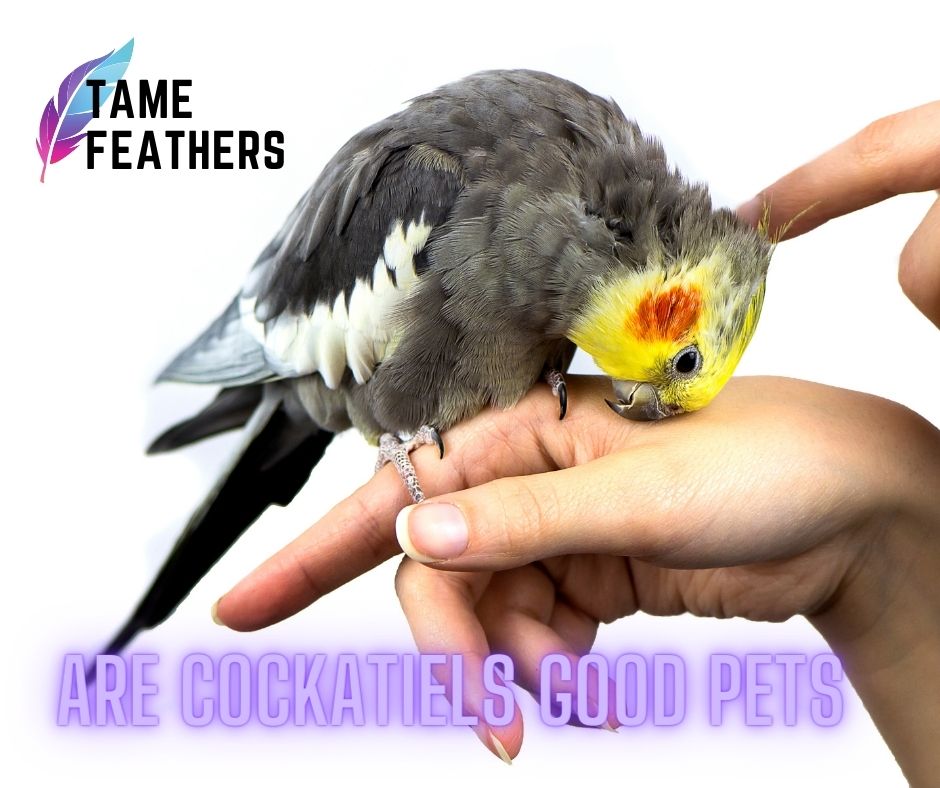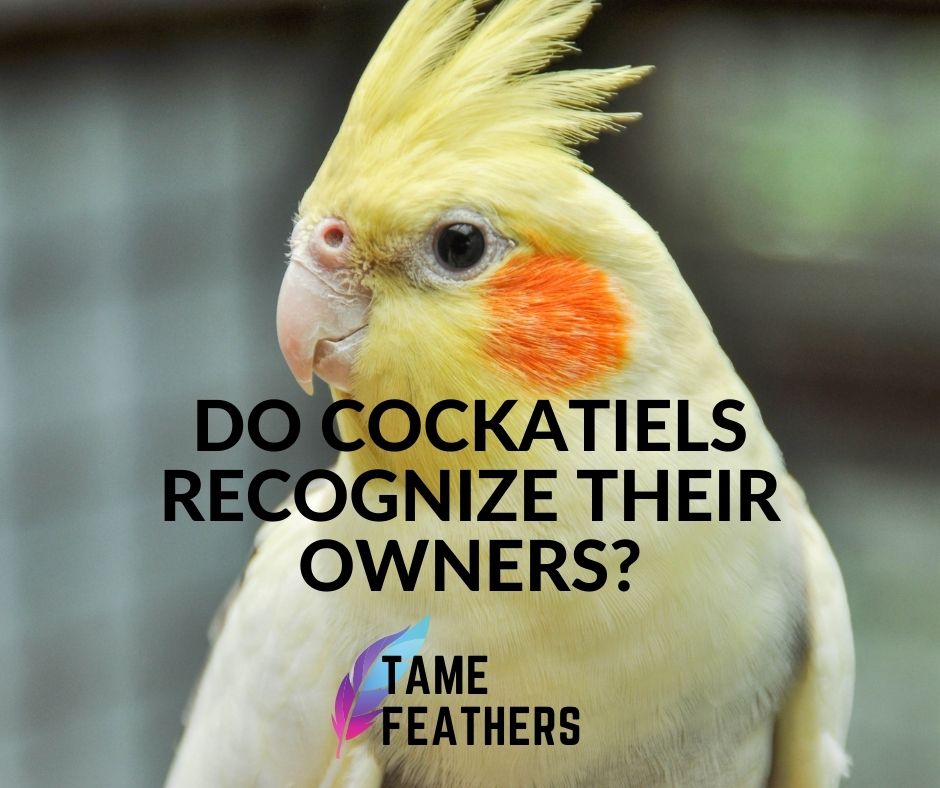Cockatiels are popular pets, known for their intelligence and playful personalities. Unfortunately, just like any other pet, cockatiels can become ill and transmit diseases to their human companions.
It is important to be aware of the potential illnesses that can be passed from cockatiels to humans and the measures that can be taken to prevent it.
Read on to learn more about the connection between cockatiels and humans, the signs of diseases in cockatiels, and the strategies that can be used to protect both the birds and the humans in the household.
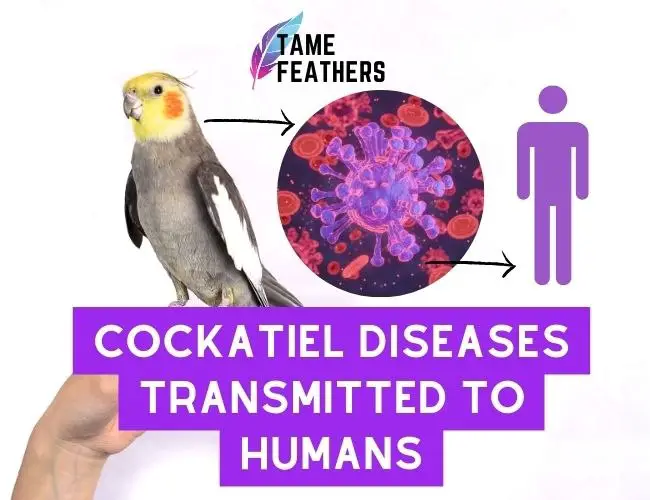
The Cockatiel-Human Connection
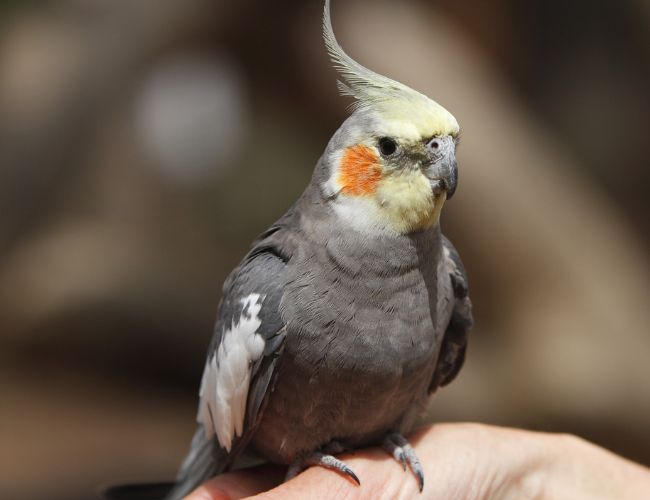
Cockatiels may seem like small, innocent birds, but they can transmit illnesses to humans if they are not properly cared for. Like any other pet, cockatiels need to be monitored for signs of disease and kept clean.
If a person lives in close contact with a cockatiel, they should take steps to protect themselves from any potential illnesses their pet might have.
Signs of Disease in Cockatiels
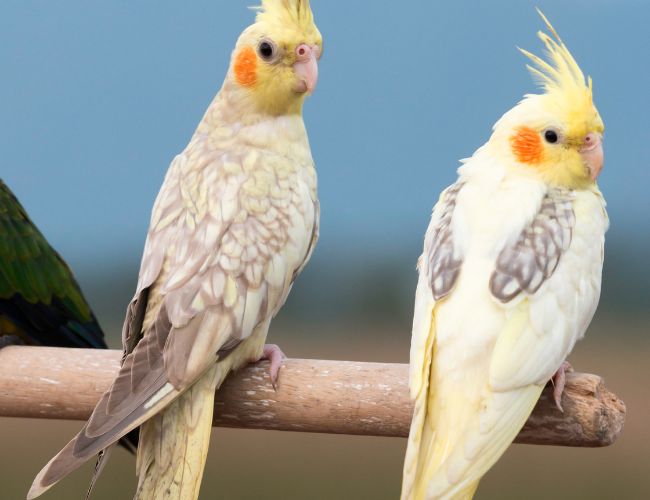
The signs of disease in cockatiels vary depending on the type of illness. Some of the most common signs are:
- loss of appetite
- dull feathers
- runny eyes
- sneezing
- coughing
- lethargy
- changes in droppings
If you notice any of these signs in your cockatiel, it is important to take them to a vet for a check-up.
Potential Diseases That Can Be Transmitted to Humans

Cockatiels can transmit a variety of diseases to humans, including:
- psittacosis,
- salmonella,
- avian influenza,
- cryptosporidiosis
Psittacosis is a bacterial infection that is caused by the Chlamydia psittaci bacteria and can be transmitted to humans through contact with bird droppings or feathers.
Salmonella is a bacterial infection that is commonly found in cockatiels and can cause food poisoning in humans.
Avian influenza is a virus that is found in wild birds and can be transmitted to humans through contact with infected birds.
Cryptosporidiosis is a parasite that is found in cockatiels and can cause diarrhea in humans.
Prevention Strategies To Consider

The best way to prevent transmission of diseases from cockatiels to humans is to practice good hygiene.
Always wash your hands after handling a cockatiel or their cage. Make sure the cage is kept clean, and the bird’s droppings are removed regularly.
Avoid contact with the bird’s droppings and feathers, and don’t let the bird out of its cage in areas where food is being prepared.
Additionally, have your cockatiel checked by a vet regularly to ensure they are healthy and free from any infections.
What To Do If You Suspect Contamination

If you think you may have been exposed to a disease from your cockatiel, it is important to seek medical attention immediately.
Tell your doctor about your contact with the bird and any symptoms you are experiencing. Your doctor can test you for the disease and provide you with the appropriate treatment.
Keep Yourself and Your Cockatiel Healthy
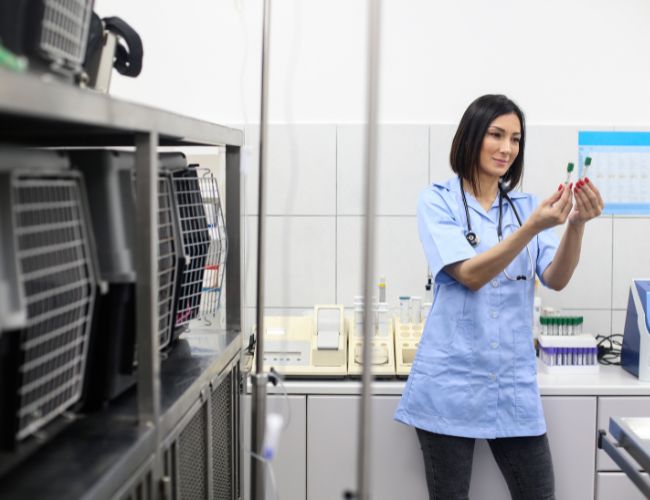
It is important to be aware of the potential risks of having a pet cockatiel and take steps to protect both yourself and your bird.
Regular vet check-ups and good hygiene practices can help keep you and your cockatiel healthy.
Being Informed is the Best Medicine

Being informed about the potential risks of having a pet cockatiel is the best way to prevent the transmission of diseases from birds to humans.
Be sure to take the necessary steps to keep your cockatiel healthy, and don’t hesitate to seek medical help if you think you have been exposed to a disease.
With the right knowledge and precautions, you and your pet can stay safe and healthy.


